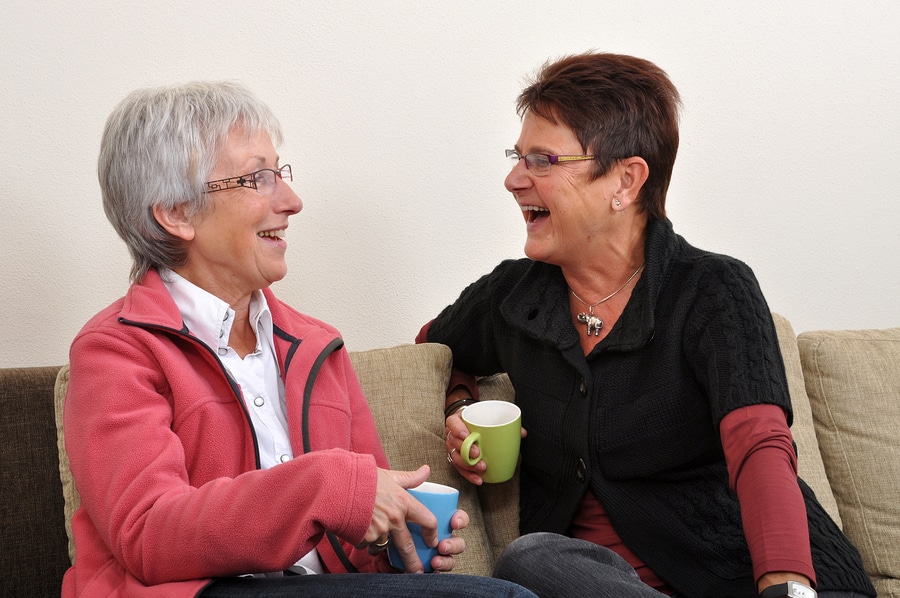In-Home Companion Care
Companion care can help with the following:
- Meal preparation
- Medication reminders
- Walking and feeding the dog
- Light housekeeping/Laundry
- Taking your loved one to appointments or social outings
- Taking your loved one to his or her doctor
- Running errands
- Engaging your loved one in Therapeutic Activities
- Organizing and maintaining a calendar of events and appointments
- Alzheimer’s and Dementia Care
What is In-Home Companion Care?
Why In-Home Companion Care Matters for Families
Benefits of Companion Care
- Social Interaction: Caregivers provide meaningful conversation, share activities like puzzles or games, and encourage hobbies, helping seniors feel valued and connected.
- Emotional Support: A trusted companion can ease feelings of loneliness or anxiety, improving overall mood and mental health.
- Practical Assistance: From helping with light housekeeping to preparing meals, companion care lightens the load for seniors who need a little extra help.
- Peace of Mind for Families: Knowing someone is there to support and care for their loved one offers families a sense of relief and reassurance.

How Companion Care Differs from Personal Care
While companion care and personal care both support seniors, they serve different purposes:
- Companion care focuses on social and emotional needs, providing conversation, activities, and assistance with non-physical tasks.
- Personal care addresses physical needs, such as help with bathing, dressing, or mobility.
- These services can complement one another, offering a comprehensive approach to meeting a senior’s needs.
More and more adults are faced with the challenge of caring for aging parents or other loved ones that need assistance and most are not prepared for the physical and emotional challenges this could entail. Caregiving can be stressful and overwhelming, but Queen City Elder Care can help.
Our goal at Queen City Elder Care is to provide first class personalized service utilizing a holistic approach for seniors and other individuals needing assistance so they can remain comfortable and independent at home.
Choosing the Right Companion Care Provider
Finding the right provider involves understanding your loved one’s needs and preferences. Key factors to consider include:
- Caregiver Training and Personality: Look for caregivers who are not only skilled but also compassionate and compatible with your loved one’s personality.
- Flexible Services: A good provider will offer plans that adapt to your family’s schedule and specific needs.
- Caregiver Oversight: A good provider will make regular visits to the client’s home for supervision and support. Queen City Elder Care can demonstrate our commitment to this critical component through our electronically verified supervisory visit records.
- Communication: Open and regular communication ensures that care plans remain effective and responsive to changes. In addition to one-on-one updates from our Director of Client Services, Queen City Elder Care provides 24/7 electronic access to our care plans, care schedules, caregiver notes, and more.
Customizing Companion Care for Your Loved One
Every individual is unique, and companion care should reflect that. Tailored care plans can include:
- Activities that align with personal interests, such as gardening, music, or crafting.
- Attention to routines, ensuring a sense of familiarity and comfort.
- Flexible scheduling, whether your loved one needs occasional visits or daily care.
This personalized approach ensures that seniors feel supported in a way that respects their individuality.
Supporting Family Caregivers Through Companion Care
The Long-Term Impact of Companion Care
Companion care does more than provide immediate help—it contributes to a senior’s long-term well-being by:
- Improving mental health through consistent interaction.
- Encouraging physical activity through walks or light exercise.
- Offering a renewed sense of purpose and connection.
These benefits help seniors maintain their independence and quality of life while fostering a stronger sense of community.

Tips for a Positive Companion Care Experience
To ensure a successful caregiving relationship:
- Involve your loved one in choosing their caregiver and developing their care plan.
- Communicate regularly with the Director of Client Services to stay updated on progress and any changing needs.
- Foster trust and understanding by encouraging open dialogue and collaboration.
With the right approach, companion care can be a rewarding experience for both seniors and their families.
In-home companion care is a valuable service for seniors and families. By providing social interaction, emotional support, and practical help, it creates an environment where seniors can thrive. With compassionate and personalized care, companionship makes every day a little brighter.



